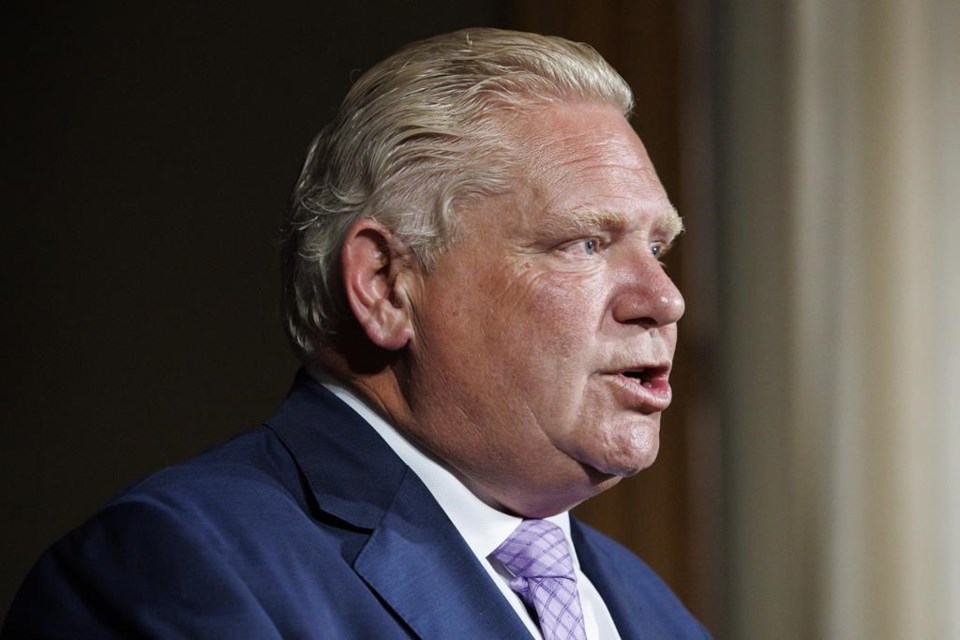As elementary and high school classes wrapped up across Ontario, Premier Doug Ford warned teachers Thursday that students must be in school in the fall and not out due to labour disruptions.
Teachers' contracts expire on Aug. 31, just days before the next school year is set to start in most schools. Contract negotiations are expected to begin sometime in July.
"My message to the teachers' union is one thing: those kids have to be back in school in September, and they have to be back in school with extracurricular activities," Ford said.
Those activities have been cut in the past when teachers work to rule.
Ford said he had confidence in education minister Stephen Lecce to negotiate a fair deal.
When asked if he would scrap a controversial piece of legislation that caps public sector wage increases at one per cent annually, Ford pledged on Thursday that the province would give teachers a raise greater than one per cent given rising inflation.
"Their increase is going to be more than one per cent. It's not going to be through the roof, but it's going to be very fair to everyone," he said. "We fully understand inflation, we fully understand the cost of living is going up."
One union leader said she appreciated the premier's optimism about striking a deal.
"We also want to see students in the classroom in the fall, and we have every intention of being there to support them," said Karen Littlewood, president of the Ontario Secondary School Teachers’ Federation.
"As far as bargaining, we would also agree that one per cent is not enough."
Littlewood said extracurricular activities have always been voluntary.
"If teachers or other education workers want to organize extracurriculars, that would be great," she said. "Kids have missed out on a lot over the last few years."
Four of the five major education unions have already taken the first step to start bargaining by sending a notice of intent to the province.
The Progressive Conservatives had a poor relationship with the unions over the previous four years, with teachers staging various strikes and work-to-rule campaigns during the last round of negotiations.
Bill 124, the wage-cap legislation, played a large role in the tensions but the government had also angered teachers by increasing class sizes and mandating two online courses for high school graduation.
Ford's first education minister also mused about cuts to full-day kindergarten.
This report by The Canadian Press was first published June 30, 2022.
Liam Casey, The Canadian Press

